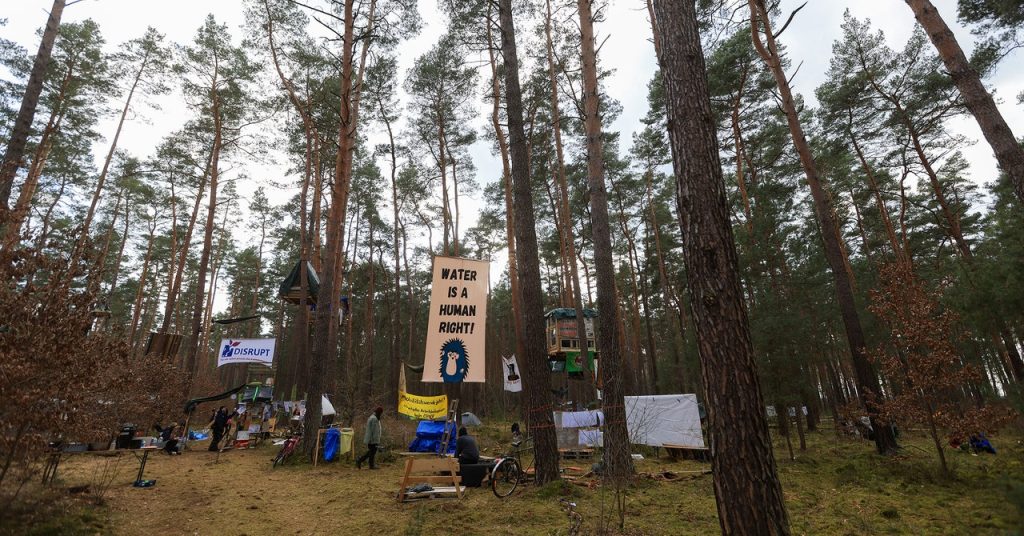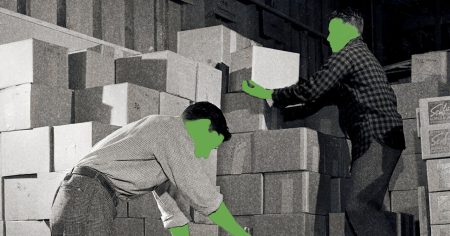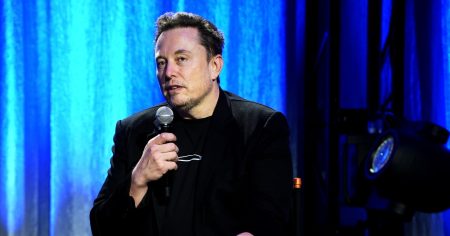Mara is sick. The 24-year-old has been living in a mosquito-infested forest near Tesla’s German gigafactory since March, and despite the 78 degrees Fahrenheit heat, a cold is spreading through the camp. Sitting on a makeshift bench, she tells me how she left Berlin to live among the pine trees, roughly an hour’s drive outside the city, in an attempt to stop the company from expanding.
This week, she will be joined by the notorious German climate group Here And No Further (Ende Gelände), known for its theatrical, often law-breaking blockades, for a five-day-long protest. Anticipating the arrival of hundreds of demonstrators, Tesla said it would shut the factory for four days, telling its employees to work from home, according to an internal email obtained by the German newspaper Handelsblatt.
Despite the absence of Tesla workers, the company employees and local authorities will be on high alert for troublemakers. The factory is separated from the forest by only a thin fence, and as I walk the forest track tracing the factory’s perimeter, a police car lumbers slowly past, carrying out patrols. On the two days I visit, a black Tesla stands guard at the end of the path connecting the factory fence and the forest camp.
Mara, who declines to share her surname, vaguely estimates that there are 50 to 100 people involved in this anti-Tesla movement. But on a Thursday afternoon, the camp is quiet. Above us is a city of treehouses. She shows me where she sleeps, a broad wooden platform—built 10 or so meters aboveground and draped in green tarpaulin. The height provides some respite from the mosquitoes, she says, as I catch three sinking into my arm at once. A man with a partially shaved head lies on a salmon-colored sofa eating cake. Closer to the road, activists talk in raised tones about Israel. Several people are barefoot. The group expresses its politics in banners hanging from the trees—electric cars are not “climate protection”; “water is a human right”; “there is no anticolonialism without a free Palestine.”
Germany is Europe’s car-manufacturing heartland, the birthplace of BMW, Volkswagen, and Porsche. So why Tesla? The company’s presence threatens everything from local water supplies to democracy itself, she argues. “This is an existential issue.”
Their reasons for being here are part environmental, part anti-capitalist, Mara explains, turning a piece of bark between dirt-encrusted fingernails. Tesla’s ambition, to produce 1 million electric cars a year in Germany, isn’t in service to the climate, Mara says. Instead she describes the 300-hectare Tesla factory as a byproduct of “green capitalism,” a plot by companies to appear environmentally friendly in order to convince consumers to keep buying more stuff. “This has been completely thought up by such companies to have more growth, even in times of an environmental crisis,” she says, adding that the protesters have had no contact with Tesla.
To people like Mara, Tesla is a symbol of how the green transition went wrong and, as a result, the company’s German gigafactory has become the target of increasingly radical protests. The activists moved into the forest in February, in an attempt to physically block Tesla from clearing another 100 hectares of forest for its expansion. One month after the forest camp appeared, unknown saboteurs blew up a nearby power line, forcing the factory to close for one week. (A left-wing protest group called Vulkan, whose members are anonymous claimed responsibility for the action.)
Read the full article here









